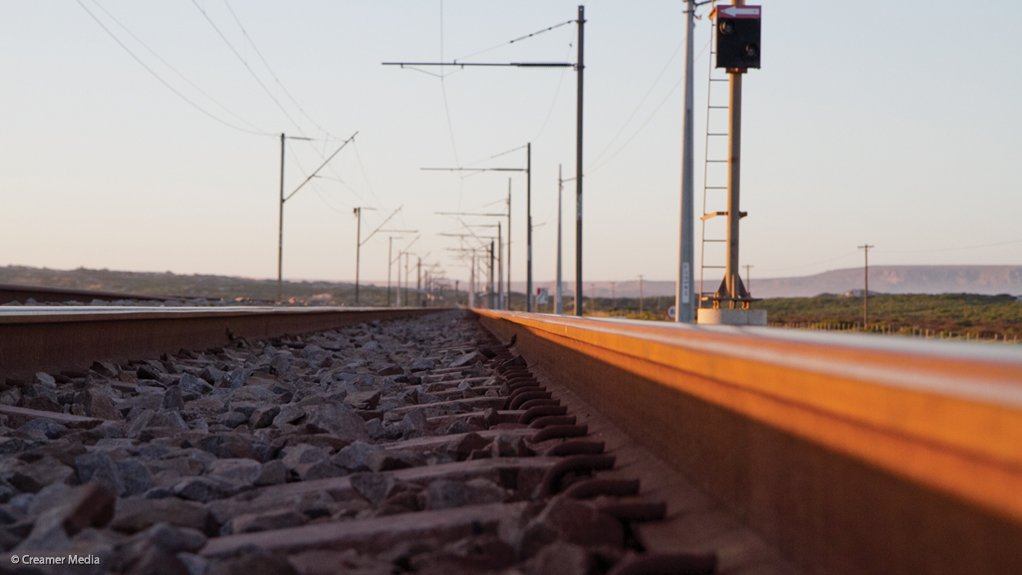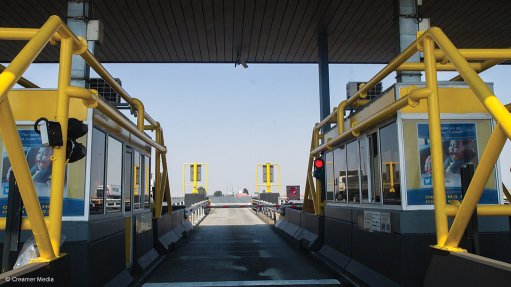Transnet chief urges formal comment on Network Statement while acknowledging cool reception to tariff methodology
Transnet CEO Michelle Phillips has acknowledged the initial negative reaction to a proposed tariff methodology published for comment by the interim Infrastructure Manager (IM) alongside the country’s inaugural draft Network Statement, which will be used to govern access to the railway network for all train operators, including Transnet Freight Rail and private operators.
However, speaking during the African Rail Industry Association (ARIA) annual general meeting, Phillips stressed that the methodology, which was based on an allowable revenue formula, had been benchmarked internationally and reviewed by reputable external advisers.
“The methodology itself is a reasonable formula that allows the IM to recover costs associated with keeping the network at a standard that is reliable, safe and available and thus able to support freight rail logistics as required by industry,” she said.
The actual rate, Phillips added, had many dependencies, including whether government was able to provide support, as was the case in other countries where rail reforms had been implemented. However, the deterioration of the network, together with a maintenance backlog, meant that significant investment was required.
That said, Phillips stressed that stakeholders had an opportunity to comment on both the Network Statement and the tariff methodology as part of a public participation process that would be facilitated by the Interim Rail Economic Regulatory Capacity (IRERC).
“This is not Transnet trying to increase its revenues, it’s an indication of what it costs to run this network and we expect everybody to interrogate it and engage with it and use the platform being provided by IRERC to comment.”
In his address, ARIA chairperson James Holley recognised the publication of the Network Statement as a “watershed moment” for the sector, but stressed that further research and consultations were required to assess whether the statement would truly open the way for investment.
He said ARIA would work with its members to ensure that the Network Statement embedded national rail policy principles and became a “document that practically translates to investment into trains”.
In addition, the association would continue to champion the concessioning of portions of the network itself, which it viewed as necessary to facilitate the investment required to support efficient train operations in a context of fiscal constraint and a weak Transnet balance sheet.
“In the general freight market, where rail and road compete on price, it is likely that private sector investment into trains will be significantly undermined by the operating risks and inefficiencies that result from poor track condition,” Holley warned, while estimating the maintenance underspend between 2013 and 2023 at R29.9-billion.
Partnerships were, thus, required to fund specific capacity expansions given that the concessioning of network segments had the potential to reinvigorate the rail sector, while retaining public ownership of the railway infrastructure.
“These concessions need to be brought to the market with urgency,” Holley argued.
Meanwhile, Phillips confirmed that there had been a recovery in rail volumes since the launch of the Transnet Recovery Plan late last year, which would reflect in the 2023/24 volume performance.
“The recovery in rail services has resulted in an increased forecast of about 150.8-million tons from the 142-million tons forecast at the initial implementation of the recovery plan.
“We know we had promised a 154-million ton number … [and] we were very nicely on track, but in early January we had that rather big derailment on the coal line and we also had two derailments on the ore line,” she explained.
In 2022/23, rail volumes slumped to 149-million tons having been at 226-million prior to Covid.
Article Enquiry
Email Article
Save Article
Feedback
To advertise email advertising@creamermedia.co.za or click here
Press Office
Announcements
What's On
Subscribe to improve your user experience...
Option 1 (equivalent of R125 a month):
Receive a weekly copy of Creamer Media's Engineering News & Mining Weekly magazine
(print copy for those in South Africa and e-magazine for those outside of South Africa)
Receive daily email newsletters
Access to full search results
Access archive of magazine back copies
Access to Projects in Progress
Access to ONE Research Report of your choice in PDF format
Option 2 (equivalent of R375 a month):
All benefits from Option 1
PLUS
Access to Creamer Media's Research Channel Africa for ALL Research Reports, in PDF format, on various industrial and mining sectors
including Electricity; Water; Energy Transition; Hydrogen; Roads, Rail and Ports; Coal; Gold; Platinum; Battery Metals; etc.
Already a subscriber?
Forgotten your password?
Receive weekly copy of Creamer Media's Engineering News & Mining Weekly magazine (print copy for those in South Africa and e-magazine for those outside of South Africa)
➕
Recieve daily email newsletters
➕
Access to full search results
➕
Access archive of magazine back copies
➕
Access to Projects in Progress
➕
Access to ONE Research Report of your choice in PDF format
RESEARCH CHANNEL AFRICA
R4500 (equivalent of R375 a month)
SUBSCRIBEAll benefits from Option 1
➕
Access to Creamer Media's Research Channel Africa for ALL Research Reports on various industrial and mining sectors, in PDF format, including on:
Electricity
➕
Water
➕
Energy Transition
➕
Hydrogen
➕
Roads, Rail and Ports
➕
Coal
➕
Gold
➕
Platinum
➕
Battery Metals
➕
etc.
Receive all benefits from Option 1 or Option 2 delivered to numerous people at your company
➕
Multiple User names and Passwords for simultaneous log-ins
➕
Intranet integration access to all in your organisation




















